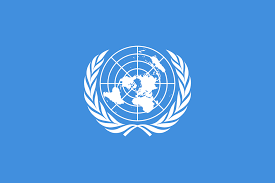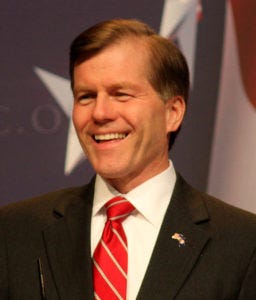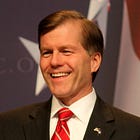Second Circuit Declines to Extend McDonnell in UN Bribery Case
Proof of an "official act" is not always required
In the landmark 2016 decision McDonnell v. United States, the Supreme Court dramatically narrowed the scope of several federal corruption laws. Last week, in a case involving the bribery of two United Nations officials, the U.S. Court of Appeals for the Second Circuit declined to extend McDonnell to two other statutes that have bribery at their core, the Foreign Corrupt Practices Act (FCPA) and federal program bribery (18 U.S.C. 666). This encouraging decision from a key appeals court may help breathe some new life into federal corruption prosecutions and dampens defense hopes that McDonnell will be applied more broadly. The UN bribery case also highlights the incoherence at the heart of the McDonnell opinion and the strategic error by the McDonnell prosecutors that made it all possible.
The United Nations flag
United States v. Ng Lap Seng
In 2009-2010 Ng Lap Seng, a Chinese national, was developing a multi-billion dollar convention complex in Macau. To enhance the status and reputation of his new development, he wanted to have the United Nations designate it as the permanent site of one of its major annual international conventions. Over a period of five years he bribed two senior U.N. officials to try to make that happen.
Ng appointed one of the officials, Francis Lorenzo, as president of a media organization owned by Ng. Lorenzo pleaded guilty, and testified at trial that he understood that the monthly payments he received from Ng, which ultimately totaled more than $1 million, were actually bribes given in exchange for Lorenzo’s help in securing a deal from the U.N.
Lorenzo introduced Ng to John Ashe, who would go on to become the President of the General Assembly, the U.N.’s second highest ranking official. In exchange for Ashe’s help with securing the U.N. commitment, Ng agreed to pay Ashe $2,500 - $6,000 a month. These bribes, which went on for several years, were disguised as payments for consulting services by Ashe’s wife that in fact were never provided. Ng also gave Ashe other benefits, including travel for himself and his family and financial support for Ashe’s activities as President of the General Assembly.
In exchange for the bribes, both Lorenzo and Ashe worked to secure the U.N. commitment that Ng desired. On July 27, 2017, a jury convicted Ng of conspiracy, FCPA violations, federal program bribery, and money laundering. He was sentenced to four years in prison.
The Statutes in Question
Ng was convicted of violating 18 U.S.C. 666, sometimes called federal program bribery. It prohibits theft or bribery by agents of organizations that receive more than $10,000 in federal benefits per year, provided that the bribe or theft is in connection with business worth at least $5,000. In particular, the bribery prohibition applies to anyone who:
corruptly gives, offers, or agrees to give anything of value to any person, with intent to influence or reward an agent of an organization . . . in connection with any business, transaction, or series of transactions of such organization, government, or agency involving anything of value of $5,000 or more.
As with most bribery statutes, the prohibitions of 666 apply to both sides of the corrupt transaction -- those who receive the bribes as well as those who give them.
Ng was also convicted of violating the FCPA, which generally prohibits bribing officers and employees of foreign governments and international organizations in order to obtain or retain business. It makes it a crime to give such an official anything of value for the purpose of:
(1) influencing any act or decision of the official in his or her official capacity;
(2) inducing the official to do or omit to do any act in violation of his or her lawful duty,
(3) securing any improper advantage, or
(4) inducing the official to use his or her influence with a foreign government or instrumentality thereof to affect or influence any act or decision of such government or instrumentality.
On appeal, Ng did not dispute that he had made the payments. But he raised a number of legal challenges to his convictions, arguing that the statutes did not apply to his conduct. One of his key arguments was that the Supreme Court’s decision in McDonnell required the government to prove the bribes Ng paid were in connection with an “official act."
Former Virginia Governor Bob McDonnell
The McDonnell Decision
Former Virginia Governor Robert McDonnell and his wife Maureen were convicted of multiple felonies in 2014. Prosecutors showed that a businessman named Jonnie Williams gave the McDonnells more than $170,000 in secret gifts over a two-year period. In exchange, Williams sought McDonnell’s help in promoting his company’s dietary supplement, Anatabloc, within the Virginia government by, among other things, having it studied by Virginia universities. McDonnell made some calls and sent some emails to arrange meetings between Williams and other Virginia officials and held a product launch event for Anatabloc at the Governor’s mansion.
The key charges against McDonnell were honest services fraud and Hobbs Act extortion under color of official right. These are popular public corruption theories that essentially prohibit bribery, although neither statute defines that offense. Before trial, prosecutors agreed with McDonnell’s attorneys that the court should use the definition of bribery contained in the primary federal bribery statute, 18 U.S.C. 201. That statute did not apply to McDonnell because he was not a federal public official, so it was not actually charged in his indictment. As a result, McDonnell is a bizarre opinion: a decision that rests almost entirely on parsing the language of a statute with which the defendant was not even charged.
Section 201 prohibits bribes in exchange for a federal public official’s “official act,” which the statute defines as:
any decision or action on any question, matter, cause, suit, proceeding or controversy, which may at any time be pending, or which may by law be brought before any public official in such official’s official capacity, or in such official’s place of trust or profit.
McDonnell's attorneys argued throughout the case that his actions on behalf of Williams did not amount to "official acts" and thus did not amount to bribery for purposes of the Hobbs Act and honest services fraud. The trial court and court of appeals disagreed, and the case went to the Supreme Court.
The Supreme Court’s decision in McDonnell consists almost entirely of analyzing the "official act" definition. It held that first the government must identify a particular “question, matter, cause, suit, proceeding or controversy” that could be pending before the public official. This requires some kind of identifiable, discrete matter, the kind of thing that could be placed on an agenda and checked off as completed. Second, the government must prove that the official made a decision or took some action “on” that matter, which requires a formal exercise of government power to try to resolve it or move it forward.
A strict interpretation of the statutory language is appropriate, the Court concluded, because otherwise the statute could criminalize routine courtesies or constituent services that politicians perform for their supporters. Acts such as arranging a meeting or holding a reception, the Court held, do not rise to the level of “decisions” or “actions” on a particular matter as defined in the statute.
The Court therefore concluded that the steps taken by McDonnell did not amount to “official acts.” Because the jury instructions did not properly reflect this narrow definition of “official act,” the Court reversed McDonnell’s convictions.
Ng’s McDonnell argument
Ng argued that the Supreme Court’s “official act” requirement in McDonnell should also apply to the FCPA and Section 666. Although these are different statutes, he argued, they are still bribery offenses, and the rationale of McDonnell and concerns expressed by the Court in that case should apply with equal force. Because the jury instructions in his case did not adequately reflect the “official act” requirement, Ng claimed, his convictions should be reversed.
The Second Circuit rejected these arguments. The Court observed there is no single uniform definition of bribery that applies to all federal crimes. The key to bribery is a quid pro quo, giving an official something of value in exchange for influencing that official in exercising the power of his or her office. But different statutes may define the precise “quids” and “quos” differently.
The Court in McDonnell did not purport to announce principles that would govern bribery-type offenses in every criminal statute. The opinion hinges entirely on the precise language defining “official act” in Section 201. But neither Section 666 nor the FCPA contains that language, or indeed any reference to “official acts.” Because the language of these statutes is different from, and broader than, the language in 201, the Second Circuit said, McDonnell does not govern those statutes.
Nor was the court persuaded by Ng’s arguments that the policy concerns expressed in McDonnell about vagueness or political prosecutions applied equally in his case. Accordingly, the court concluded, in a prosecution under 666 or the FCPA the government is not required to prove an “official act” as defined in McDonnell.
Ng Is Right, McDonnell Was Wrong
The Second Circuit’s decision in Ng seems clearly correct. The entire focus of McDonnell was interpreting particular statutory language. There is no logical basis for importing that reasoning into a statute that does not contain the same language.
But the Ng decision also highlights the incoherence at the heart of McDonnell. As the Ng court noted, there is no single definition of bribery in the federal criminal code. There was no particular reason for the McDonnell Court to graft the definition found in Section 201 onto two different criminal statutes, Hobbs Act extortion and honest services fraud. Like Section 666 and the FCPA, those statutes do not contain any reference to “official acts.”
Bribery is an ancient common-law crime; there was nothing magical about Section 201 that compelled the Supreme Court to use that definition. It would have made just as much sense for the Court to look to the definition in Section 666, or to look to a law dictionary, or simply to rely on the common-law definition of bribery as a quid pro quo, a corrupt gift given in exchange for the exercise of some official power.
The irrationality of McDonnell's requirement of an "official act" is further highlighted by the fact that not every bribery case under Section 201 requires an "official act." That statute also prohibits bribes to induce an official to violate his or her official duty or engage in a fraud against the United States. The definition of bribery adopted in McDonnell thus ended up being even more limited than the definition in the statute upon which McDonnell relied. In effect, the Court only used a portion of the definition of bribery found in 201 but proclaimed that as the full definition for purposes of the Hobbs Act and honest services fraud.
As the Second Circuit noted in Ng, both sides in McDonnell had agreed well before his trial that the "official act" portion of the definition of bribery in Section 201 should apply to McDonnell's case. I think this was a key tactical error by the prosecutors. As I wrote in this post, I'd argue that the defense won the McDonnell case before the trial even began when it got the government to make this concession.
The Supreme Court ultimately ended up wallowing in the weeds of the language of Section 201 and ignoring the reality of what was going on with Governor McDonnell: not routine constituent services for a campaign support, but the exercise of official power in exchange for undisclosed gifts.
The Implications of the Ng Decision
The Ng decision has some interesting implications for future corruption prosecutions. Many state and local corruption cases that might have been prosecuted as honest services fraud or Hobbs Act violations before McDonnell could also fit within Section 666. Indeed, prosecutors likely could have indicted Governor McDonnell himself under 666 if they could have established that the research studies and other benefits sought by Williams were worth at least $5,000. This could lead to a rather incongruous result: despite all of the Supreme Court’s rhetoric in McDonnell about public officials supposedly being prosecuted for routine political favors, the same actions that the Court found were not “official acts” under 201 might well support a prosecution under Section 666.
Ng will undoubtedly appeal to the Supreme Court, but that Court is probably unlikely to take the case. It already denied certiorari in another Second Circuit case, United States v. Boyland, which also held, although with far less analysis, that McDonnell does not apply to Section 666. And the Court’s opinion in McDonnell has left it somewhat boxed in: having relied exclusively on the precise language of one statute, the Court has little room to argue that its decision applies to a different statute that does not contain that language.
Ideally, Congress would amend the criminal code to provide a uniform definition of bribery, broader than that in Section 201, that would apply to all of these statutes. But for now, many corruption schemes that could be barred by McDonnell may be repackaged as violations of Section 666. That statute does not apply to federal public officials, so those cases will continue to be limited by McDonnell’s cramped view of public corruption. But at least when it comes to state and local officials, Ng highlights a potential work-around for federal prosecutors seeking to pursue clearly corrupt behavior such as that engaged in by Governor McDonnell.






